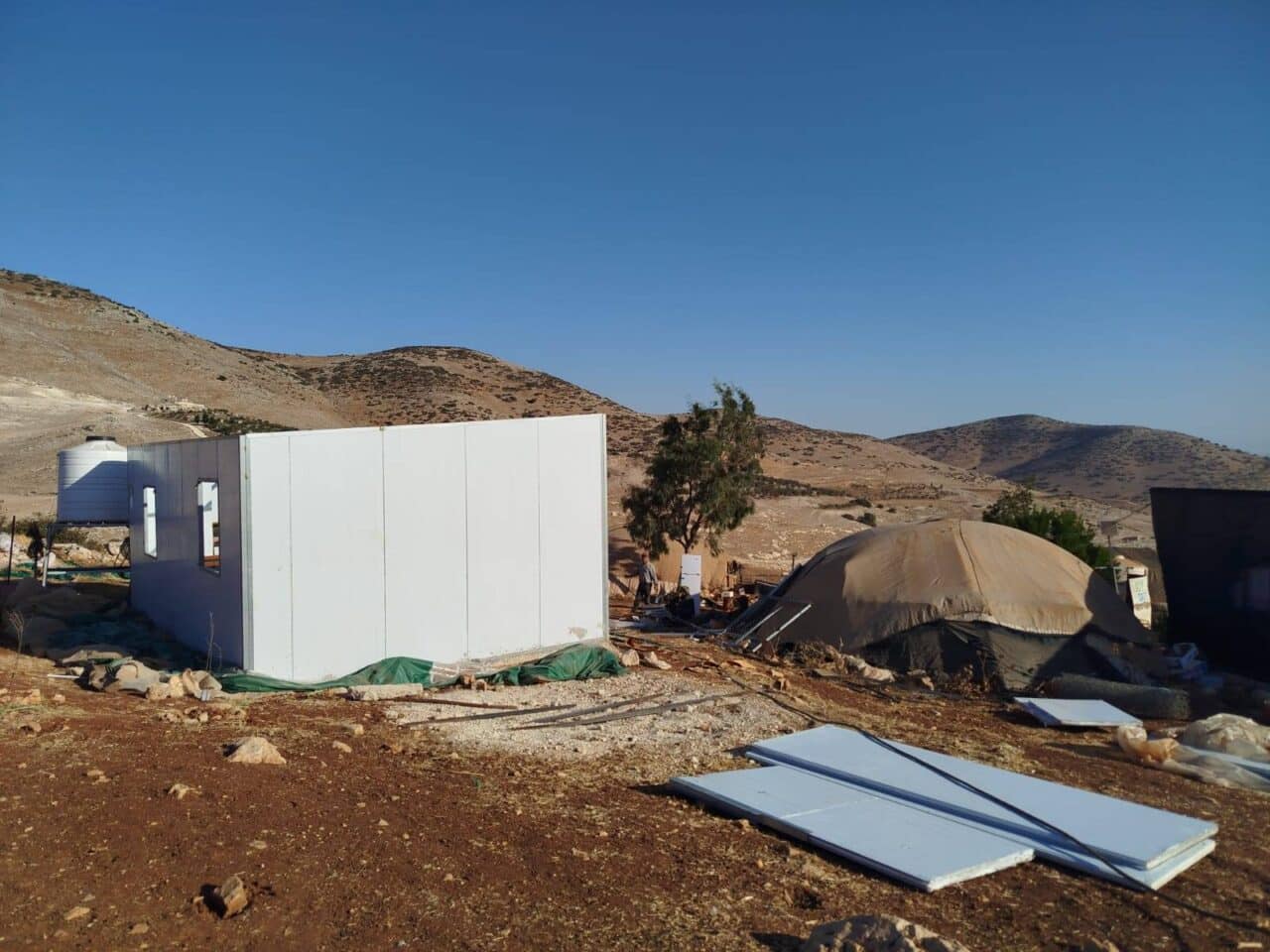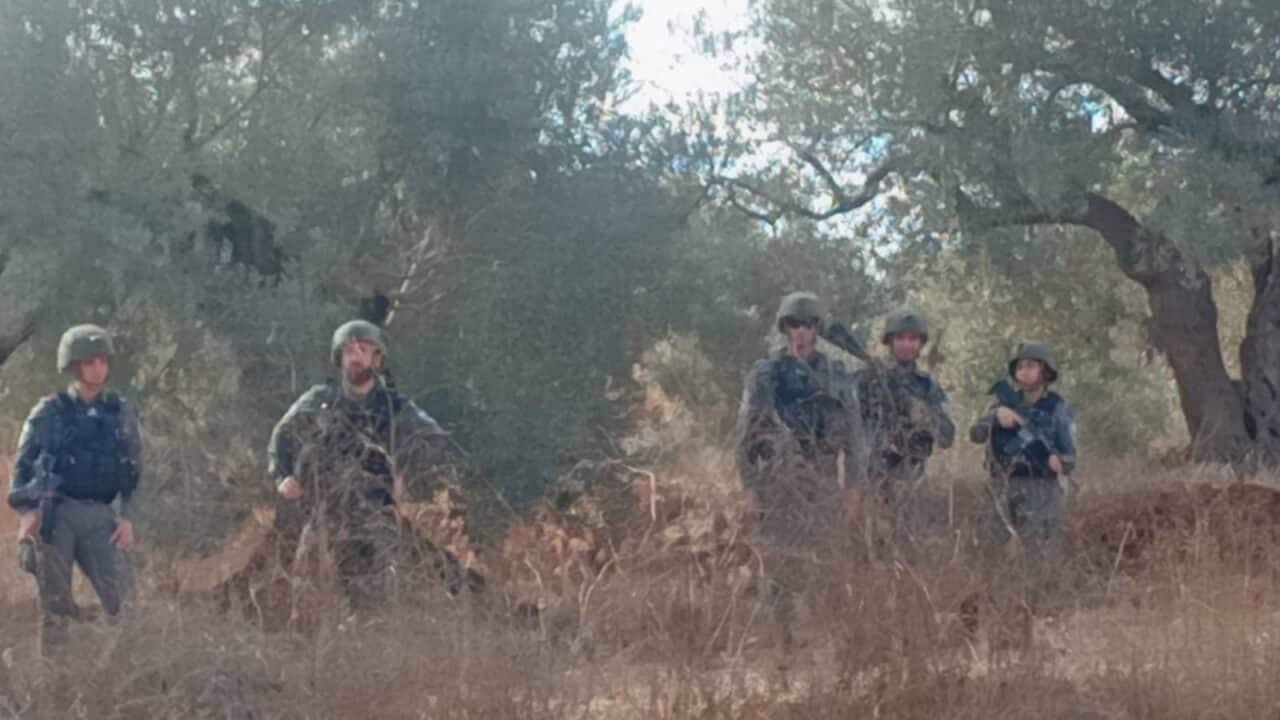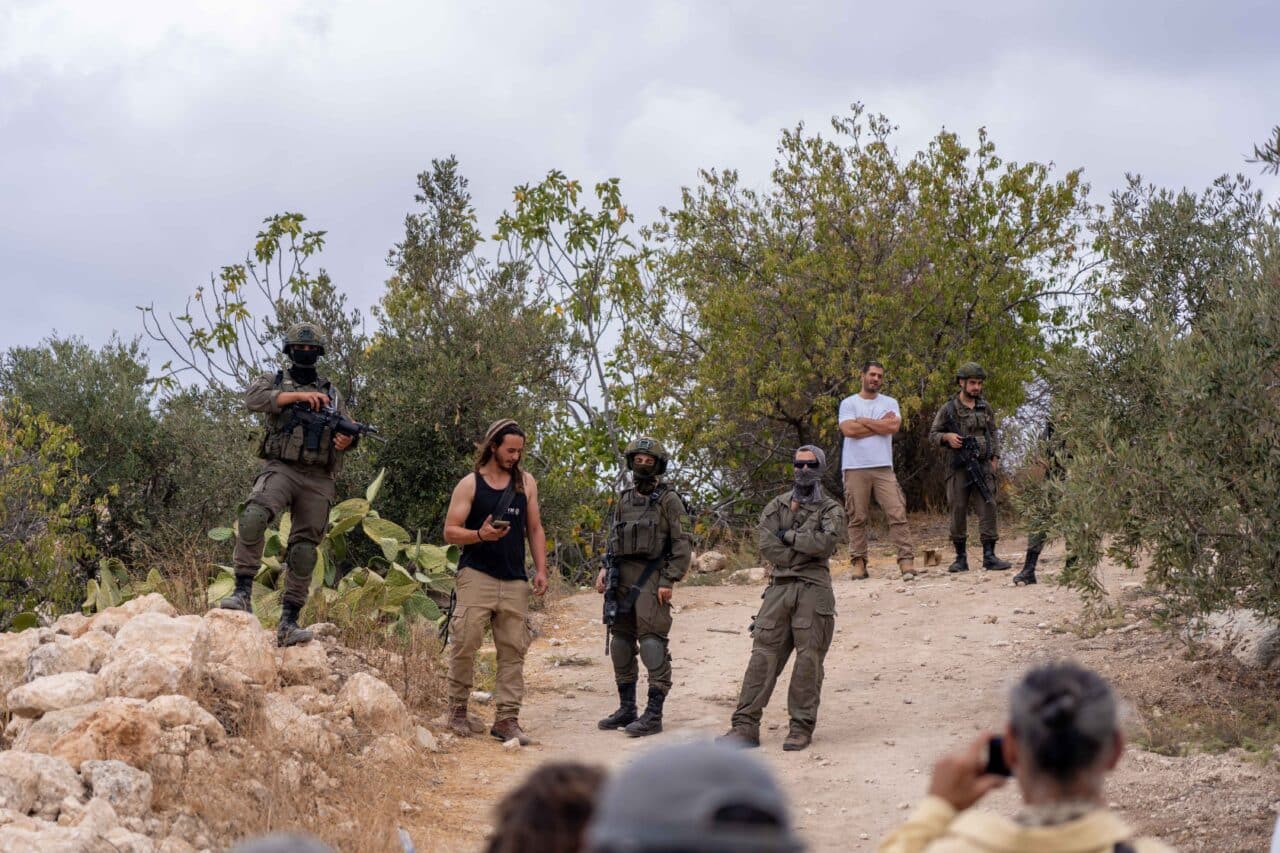Category: Reports
-
Ibziq – A Dissection of a Forced Displacement in the Northern Jordan Valley
The community of Ibziq was located in the north of the Jordan Valley, in the Tubas region, until the end of September 2025. A member of the last family living there mentioned “it is like paradise”. The area is full of pasture for the sheep to eat and with stunning vegetation that blooms beautifully in…
-
Settlers Attack Palestinians during the Harvest in Beita
On October 10, in the hills above Beita, what should have been a joyous start to olive harvesting season illustrated what our Palestinian comrades face as they try to work their land. We arrived to ambulances and three injured Palestinians, attacked by settlers before 8am. Within the first hour, we encountered a group of seven…
-
Olive Harvest updates: October 12
alMughayyer, East RamallahIsraeli citizens cut off some 150 olive trees in the Marj Sia area west of alMughayyer tonight. In recent weeks, the uprooting and cutting off olive trees has happened on a daily basis. Qaryout, South NablusIsraeli citizens set fire in the Batisha area north-west of the village Yanoun, East NablusIsraelis cut down olive…



